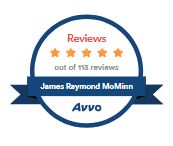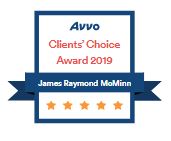North Carolina generally has gun laws that allow people to both openly and concealed carry firearms, but possessing a gun can often be problematic when individuals encounter police officers. You will want to speak to a Winston-Salem weapons charges lawyer if the police happen to arrest you for any gun or other weapon-related offense in North Carolina.
You will want to know which legal strategies to employ so you can fight your criminal charges. With the help of an attorney, you might get a reduction or dismissal of all your criminal charges.
Types of Cases Our Winston-Salem Weapons Charges Lawyer Handles
Some of the most common gun and weapons offenses in North Carolina include:
- Felonious assault with a deadly weapon with intent to kill or inflicting serious injury, North Carolina General Statute § 14-32 – It is a Class C felony for an alleged offender to assault another individual with a deadly weapon with intent to kill and inflict serious injury. It is a Class E felony for an alleged offender to assault another person with a deadly weapon and inflict serious injury or assault another person with a deadly weapon with intent to kill.
- Discharging certain barreled weapons or a firearm into occupied property, North Carolina General Statute § 14-34.1 – It is a Class E felony for an alleged offender to willfully or wantonly discharge or attempt to discharge any firearm or other barreled weapon into any structure, building, vehicle, watercraft, aircraft, or other conveyance, device, equipment, erection, or enclosure while it is occupied. An alleged offender commits a Class D felony if they willfully or wantonly discharge a weapon into an occupied dwelling or any occupied vehicle, watercraft, aircraft, or other conveyance that is in operation. When a violation results in serious bodily injury to any person, this is a Class C felony.
- Possession of a stolen firearm, North Carolina General Statute § 14-72 – Larceny of goods with a value of more than $1,000, and the receiving or possessing of stolen goods of a value of more than $1,000 while knowing or having reasonable grounds to believe the goods are stolen are Class H felony offenses. Larceny of property or goods for which the value is not more than $1,000 is a Class 1 misdemeanor.
- Alteration, destruction, or removal of the serial number from a firearm; possession of a firearm with serial number removed, North Carolina General Statute § 14-160.2 – It is illegal for an alleged offender to alter, deface, destroy, or remove a manufacturer’s identification plate, permanent serial number, or other permanent distinguishing number or identification mark from a firearm with the intent to conceal or misrepresent the identity of the firearm, or to possess, sell, or buy any firearm on which a permanent manufacturer’s identification plate, serial number, or other permanent distinguishing number or identification mark has been destroyed, altered, defaced, or removed for the purpose of misrepresenting or concealing the identity of the firearm. This is a Class H felony.
- Carrying concealed weapons, North Carolina General Statute § 14-269 – It is illegal to willfully and intentionally carry a concealed weapon on your person, including certain knives, slingshots, loaded canes, metallic knuckles, razors, stun guns, firearms, or any other deadly weapon. The only exceptions are when you are on your own property or when you have a Concealed Carry Permit for a handgun. This is a Class 2 misdemeanor for a first offense and a Class H felony for a second or subsequent offense.
- Weapons on campus or other educational property, North Carolina General Statute § 14-269.2 – It is a Class I felony for an alleged offender to knowingly possess or openly or concealed carry any gun, pistol, rifle, or another kind of firearm on educational property or to a curricular or extracurricular activity sponsored by a school. An alleged offender who willfully discharges a firearm of any kind on educational property commits a Class F felony. It is a Class G felony for an alleged offender to possess or openly or concealed carry any grenade, dynamite cartridge, bomb, mine, or powerful explosive on educational property or to a curricular or extracurricular activity that is sponsored by a school. It is a Class I felony for an alleged offender to encourage, cause, or aid a minor to openly or concealed possess or carry any pistol, gun, rifle, or any other kind of firearm on educational property. An alleged offender commits a Class G felony if they encourage, cause, or aid a minor to openly or concealed possess or carry any grenade, dynamite cartridge, bomb, mine, or powerful explosive on educational property. An alleged offender commits a Class 1 misdemeanor if they openly or concealed possess or carry any switchblade knife, BB gun, stun gun, air rifle, air pistol, bowie knife, dirk, dagger, slungshot, leaded cane, blackjack, metallic knuckles, firework, razors and razor blades, or any sharp-pointed or edged instrument except for instructional supplies, unaltered nail files, and clips and tools used solely for the preparation of food, instruction, and maintenance, on educational property. An alleged offender commits a Class 1 misdemeanor if they cause, encourage, or aid a minor to openly or concealed carry or possess any switchblade knife, stun gun, BB gun, air pistol, air rifle, bowie knife, dirk, dagger, slungshot, leaded cane, blackjack, metallic knuckles, firework, razors and razor blades, or any sharp-pointed or edged instrument except for instructional supplies, unaltered nail files and clips and tools used exclusively for the preparation of food, instruction, and maintenance, on educational property.
- Manufacture, assembly, possession, storage, transportation, sale, purchase, delivery, or acquisition of weapon of mass death and destruction, North Carolina General Statute § 14-288.8 – It is a Class F felony for an alleged offender to manufacture, assemble, possess, store, transport, sell, offer to sell, purchase, offer to purchase, deliver or give to another, or acquire any weapon of mass death and destruction.
- Possession of a firearm by a felon, North Carolina General Statute § 14-415.1 – It is a Class G felony for any person with a felony conviction to possess a firearm.
The bottom line remains that there are four groups of people who will face a prohibition on weapons possession:
- Minors – People under 18 years of age commit a Class 1 misdemeanor if they intentionally have a handgun unless they are hunting outside city limits with parental permission or they are engaging in educational or recreational activities that have adult supervision. It is also a Class 2 misdemeanor for an adult to allow a child under 12 years of age to have access to a dangerous firearm without supervision.
- Convicted felons – It is a Class G felony to buy or possess a firearm, bomb, or other weapons of mass destruction when an alleged offender has a previous felony conviction.
- Domestic violence offenders – An alleged offender commits a Class H felony if they buy or possess a firearm or ammunition while they are the subject of a domestic violence protective order, and it is also illegal to have a gun if they have a domestic violence misdemeanor conviction.
- Drinking or under the influence of alcohol – It is a Class 2 misdemeanor for an alleged offender to carry a concealed handgun while they are drinking alcohol or under the influence of alcohol or a controlled substance.
Possible Criminal Penalties in Winston-Salem
Misdemeanors and felonies have different sentencing guidelines in North Carolina. The three types of possible penalties for misdemeanor convictions include:
- Active punishment – A jail sentence the alleged offender serves in a local or state jail or another confinement facility.
- Intermediate punishment – An intermediate punishment may involve a judge sentencing the alleged offender to supervised probation with possible house arrest provisions, electronic monitoring, drug treatment court, and brief periods of time in a jail or other confinement facility.
- Community punishment – Community punishment usually forgoes all jail time and instead involves a fine, probation, and or community service.
Sentences in North Carolina are also based on prior conviction levels, with the three levels being:
- Level I – No previous convictions.
- Level II – One to four previous convictions.
- Level III – Five or more previous convictions.
After a judge reviews an alleged offender’s prior convictions, sentences can include:
- Class 3 misdemeanors – Up to 30 days of active, intermediate, or community punishment and a $200 fine.
- Class 2 misdemeanors – Up to 60 days of active, intermediate, or community punishment and a $1,000 fine.
- Class 1 misdemeanors – Up to 120 days of active, intermediate, or community punishment and a fine with no statutory maximum that is at the judge’s discretion.
- Class A1 misdemeanors – Up to 150 days of active, intermediate, or community punishment and a fine with no statutory maximum that is at the judge’s discretion.
When it comes to a felony, a court must determine an alleged offender’s prior criminal record level. Every prior conviction gets points as follows:
- Every prior Class A felony conviction – 10 points
- Every prior Class BI felony conviction – 9 points
- Every prior Class B2, C, or D felony conviction – 6 points
- Every prior Class E, F, or G felony conviction – 4 points
- Every prior Class H or I felony conviction – 2 points
- Every prior misdemeanor conviction – 1 point
Record levels are then determined as follows:
- Level I – 0 to 1 point
- Level II – 2 to 5 points
- Level III – 6 to 9 points
- Level IV – 10 to 13 points
- Level V – 14 to 17 points
- Level VI – 18 or more points
The court can then either sentence an alleged offender within a presumptive range, aggravated range, or mitigated range. Felonies can result in the following prison sentences (fines are at a judge’s discretion):
- Class I felony – Up to 12 months
- Class H felony – Up to 25 months
- Class G felony – Up to 31 months
- Class F felony – Up to 41 months
- Class E felony – Up to 63 months
- Class D felony – Up to 160 months
- Class C felony – Up to 182 months
- Class B2 felony – Up to 393 months
- Class B1 felony – Up to life without parole
- Class A felony – Up to death or life with or without parole
Imprisonment and fines are the obvious consequences, but there can be other consequences to both misdemeanor and felony convictions in North Carolina. A lawful permanent resident (LPR) or “green card holder” may see negative impacts on their immigration status, but even United States citizens can still have to deal with the loss of a professional license, possible termination of child custody rights, and forfeiture of their gun rights.
Aggravating and Mitigating Factors
Misdemeanors and felonies can both involve mitigating or aggravating factors that might impact the possible punishment a court imposes. Aggravated and mitigated sentences are established under North Carolina General Statute § 15A-1340.16, and mitigating factors include:
- The alleged offender committed the alleged offense under coercion, duress, threat, or compulsion that was not sufficient to constitute a defense but significantly reduced culpability.
- The alleged offender was a passive participant or played a minor role in the commission of the alleged offense.
- The alleged offender was suffering from a mental or physical condition that was insufficient to constitute a defense but significantly reduced the alleged offender’s culpability for the alleged offense.
- The alleged offender’s age, immaturity, or limited mental capacity at the time of the commission of the alleged offense significantly reduced the alleged offender’s culpability for the alleged offense.
- The alleged offender made substantial or full restitution to the alleged victim.
- The alleged victim was more than 16 years of age and was a voluntary participant in the alleged offender’s conduct or consented to it.
- The alleged offender assisted in the apprehension of another felon or testified truthfully on behalf of the prosecution in another felony prosecution.
- The alleged offender acted under strong provocation, or the relationship between the alleged offender and the alleged victim was otherwise extenuating.
- The alleged offender could not reasonably foresee that the alleged offender’s conduct would cause or threaten serious bodily harm or fear, or the alleged offender exercised caution to avoid such consequences.
- The alleged offender reasonably believed that the alleged offender’s conduct was legal.
- Prior to an arrest or at an early stage of the criminal process, the alleged offender voluntarily acknowledged wrongdoing in connection with the alleged offense to a law enforcement officer.
- The alleged offender has been a person of good character or has had a good reputation in the community in which the alleged offender lives.
- The alleged offender is a minor and has reliable supervision available.
- The alleged offender has been honorably discharged from the Armed Forces of the United States.
- The alleged offender has accepted responsibility for the alleged offender’s criminal conduct.
- The alleged offender entered and is currently involved in or successfully completed a drug treatment or alcohol treatment program following the arrest and prior to trial.
- The alleged offender supports the alleged offender’s family.
- The alleged offender has a support system in the community.
- The alleged offender has a positive employment history or is gainfully employed.
- The alleged offender has a good treatment prognosis, and a workable treatment plan is available.
- Any other mitigating factor that is reasonably related to the purposes of sentences.
Aggravating factors include:
- The alleged offender induced others to participate in the commission of the alleged offense or had a position of leadership relating to other participants.
- The alleged offender joined with more than one other person in committing the alleged offense and was not charged with committing a conspiracy.
- The commission of the alleged offense was for the benefit of, or at the direction of, a criminal gang as defined by North Carolina General Statute § 14-50.16A(1), with intent to either further, promote, or assist in criminal conduct by gang members, and the alleged offender was not charged with committing a conspiracy.
- The alleged offense was committed for the purpose of avoiding or preventing a lawful arrest or effecting an escape from custody.
- The alleged offender was hired or paid to commit the alleged offense.
- The alleged offense was committed to disrupt or hinder the lawful exercise of any governmental function or the enforcement of laws.
- The alleged offense was committed against or caused serious injury to a present or former Division of Adult Correction and Juvenile Justice of the Department of Public Safety employee, law enforcement officer, jailer, emergency medical technician, fireman, ambulance attendant, social worker, justice or judge, clerk or assistant or deputy clerk of court, magistrate, juror, prosecutor, or witness against the alleged offender, while they were engaged in the performance of official duties or because of the exercise of their official duties.
- The alleged offense was committed against or proximately caused serious harm as defined in North Carolina General Statute § 14-163.1 or death to a law enforcement agency animal, assistance animal, or search and rescue animal as defined in North Carolina General Statute § 14-163.1, while engaged in the performance of the animal’s official duties.
- The alleged offense was especially heinous, atrocious, or cruel.
- The alleged offender knowingly created a considerable risk of death to more than a single person by means of a weapon or device that would normally be hazardous to the lives of more than one person.
- The alleged offender held public elected or appointed office or public employment at the time of the alleged offense, and the alleged offense was directly related to the conduct of the office or employment.
- The alleged offender is a firefighter or rescue squad worker, and the alleged offense is directly related to their service as a firefighter or rescue squad worker.
- The alleged offender either was armed with or used a deadly weapon at the time of the alleged crime.
- The alleged victim was very young, very old, mentally or physically infirm, or disabled.
- The alleged offender committed the alleged offense while on pretrial release on another charge.
- The alleged offender has, during the 10-year period prior to the commission of the most recent alleged offense, been found by a court to be in willful violation of conditions of probation that were imposed pursuant to a suspended sentence or was found by the Post-Release Supervision and Parole Commission to be in willful violation of a condition of parole or post-release supervision imposed pursuant to their release from incarceration.
- The alleged offender involved a person under the age of 16 in the commission of the crime.
- The alleged offender committed the alleged offense and either knew or reasonably should have known that a person under 18 years of age who was not involved in the commission of the alleged offense was in a position to see or hear the alleged offense.
- The alleged offense involved an attempted or actual taking of property of great monetary value or damage causing great monetary loss, or the alleged offense involved an unusually large quantity of contraband.
- The alleged offender took advantage of a position of trust or confidence, including a domestic relationship, to commit the alleged offense.
- The alleged offense involved the sale or delivery of a controlled substance to a minor.
- The alleged offense involved the manufacture of methamphetamine and was committed where a person under 18 years of age lives, was present or was otherwise endangered by exposure to the drug, its ingredients, its by-products, or its waste.
- The alleged offense is the manufacture of methamphetamine and was committed in a dwelling that is one of four or more contiguous dwellings.
- The alleged offense for which the alleged offender stands convicted was committed against an alleged victim because of the alleged victim’s race, color, religion, nationality, or country of origin.
- The alleged offender does not support the alleged offender’s family.
- The alleged offender has previously been adjudicated delinquent for an alleged offense that would be either a Class A, B1, B2, C, D, or E felony had it been committed by an adult.
- The serious injury inflicted upon the alleged victim is permanent and debilitating.
- The alleged offense is a violation of North Carolina General Statute § 14-43.11 (human trafficking), North Carolina General Statute § 14-43.12 (involuntary servitude), or North Carolina General Statute § 14-43.13 (sexual servitude) and involved multiple alleged victims.
- The alleged offense is a violation of North Carolina General Statute § 14-43.11 (human trafficking), North Carolina General Statute § 14-43.12 (involuntary servitude), or North Carolina General Statute § 14-43.13 (sexual servitude), and the alleged victim suffered serious injury as a result of the alleged offense.
- Any other aggravating factor that is reasonably related to the purposes of sentencing.
Winston-Salem Courts
In North Carolina, the district court hears criminal cases involving misdemeanors and infractions, while the superior court handles felony cases. For Winston-Salem, the district and superior courthouse are the Forsyth County Courthouse, located at:
200 N Main St.
Winston Salem, NC 27101
(336) 779-6300
Forsyth County is District 22, but other nearby courts include:
District 22b Davidson County District Court Thomasville
22 Randolph Street
Thomasville, NC 27360
(336) 474-3185
District 18 Guilford County District Court High Point
505 East Green Drive
High Point, NC 27262
(336) 801-5252























